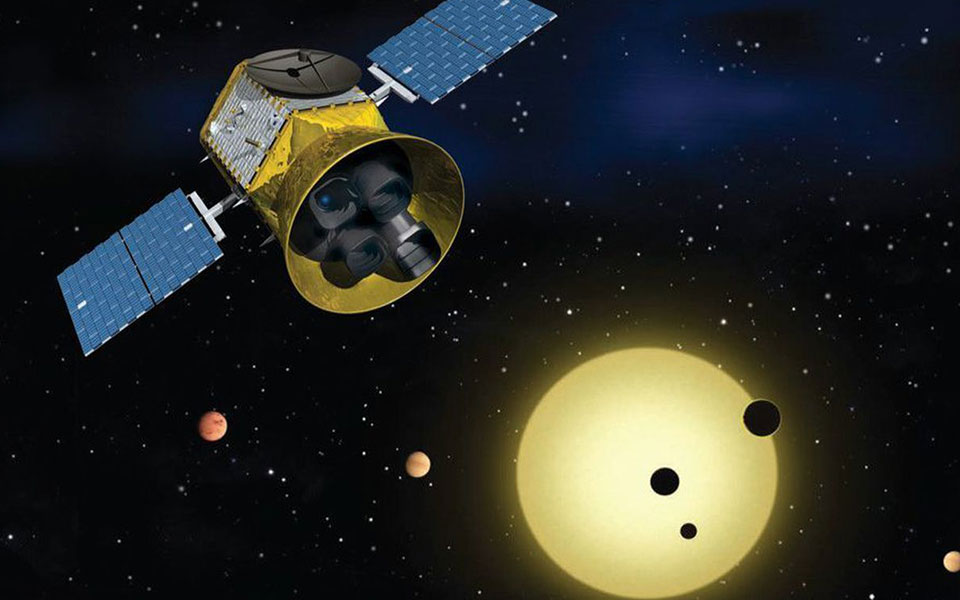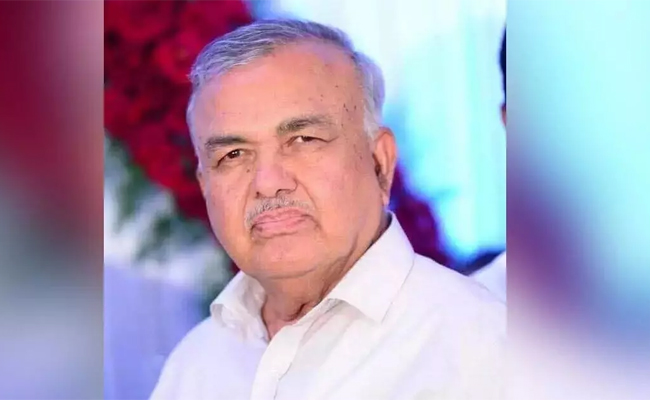TAMPA, UNITED STATES: NASA is poised to launch a $337 million washing machine-sized spacecraft that aims to vastly expand mankind's search for planets beyond our solar system, particularly closer, Earth-sized ones that might harbor life.
The Transiting Exoplanet Survey Satellite, or TESS, is scheduled to launch Monday at 6:32 pm (2232 GMT) atop a SpaceX Falcon 9 rocket from Cape Canaveral, Florida.
Its main goal over the next two years is to scan more than 200,000 of the brightest stars for signs of planets circling them and causing a dip in brightness known as a transit.
NASA predicts that TESS will discover 20,000 exoplanets -- or planets outside the solar system -- including more than 50 Earth-sized planets and up to 500 planets less than twice the size of Earth.
"They are going to be orbiting the nearest, brightest stars," Elisa Quintana, TESS scientist at NASA's Goddard Space Flight Center, told reporters on Sunday.
"We might even find planets that orbit stars that we can even see with the naked eye," she added.
"So in the next few years we might even be able to walk outside and point at a star and know that it has a planet. This is the future."
TESS is designed as a follow-on to the US space agency's Kepler spacecraft, which was the first of its kind and launched in 2009. Now, the aging spacecraft is low on fuel and near the end of its life.
Kepler found a massive trove of exoplanets by focusing on one patch of sky, which contained about 150,000 stars like the Sun.
The Kepler mission found 2,300 confirmed exoplanets and nearly 4,500 candidates. But many were too distant and dim to study further.
TESS, with its four advanced cameras, will scan an area that is 350 times larger, comprising 85 percent of the sky in the first two years alone.
"By looking at such a large section of the sky -- this kind of stellar real estate -- we open up the ability to cherry-pick the best stars to do follow up science," said Jenn Burt, a postdoctoral fellow at the Massachusetts Institute of Technology (MIT).
"On average the stars that TESS finds observes be 30-100 times brighter and 10 times closer than the stars that Kepler focused on."
Since TESS uses the same method as Kepler for finding potential planets, by tracking the dimming of light when a celestial body passes in front of a star, the next step is for ground-based and space telescopes to peer closer.
The Hubble Space Telescope and the James Webb Space telescope, scheduled to launch in 2020, should be able to reveal more about planets' mass, density and the makeup of their atmosphere.
"TESS forms a bridge from what we have learned about exoplanets to date and where we are headed in the future," said Jeff Volosin, TESS project manager at NASA's Goddard Space Flight Center.
By focusing on planets dozens to hundreds of light-years way, TESS should be a stepping stone to future breakthroughs, he said.
"With the hope that someday, in the next decades, we will be able to identify the potential for life to exist outside the solar system."
Weather was expected to be 80 percent favorable for launch.
Let the Truth be known. If you read VB and like VB, please be a VB Supporter and Help us deliver the Truth to one and all.
Guwahati (PTI): The opposition Congress on Tuesday took the lead in announcing its first list of 42 candidates for the upcoming assembly elections in Assam, with it comprising both sitting MLAs and former ministers, and also new faces, including sons of three prominent politicians.
The party's chief ministerial candidate and state president Gaurav Gogoi will contest from the prestigious Jorhat assembly constituency, currently held by BJP's Hitendra Nath Goswami.
The Deputy Leader of the Opposition in the Lok Sabha will make his first electoral foray for the assembly.
ALSO READ: Loan recovery agent in Bengaluru murdered for reportedly stepping on accused’s foot
Gogoi is currently the party MP from the Jorhat parliamentary constituency and previously represented Kaliabor twice before it was reconstituted during the delimitation exercise in the state.
The leader of the opposition in the state assembly, Debabrata Saikia, will contest from the family stronghold of Nazira, which he has represented since 2016. His father, former chief minister Hiteswar Saikia, and his mother, Hemoprava Saikia, previously represented the constituency.
Three sitting MLAs -- Nandita Das from Hajo-Sualkuchi, Diganta Barman from Barkhetry and Nurul Huda from Rupohihat -- have also been included in the list.
Das, a two-time MLA, had earlier contested from Boko but following the delimitation exercise in the state, she has been shifted to Hajo-Sualkuchi while Barman and Huda will contest from the same seats they represented in the current assembly.
Former minister and state Congress president Ripun Bora will contest from Barchalla while another former minister, Ajit Singh, will contest from Udharbond constituency in Barak Valley.
Former minister and Deputy Speaker Pranati Phukan, a four-time MLA till 2016, will contest from Naharkatia in Upper Assam.
Tanzil Hussain, son of Dhubri MP Rakibul Hussain, will contest from Samaguri where he had lost to BJP's Diplu Ranjan Sarmah in the 2024 by-elections which was necessitated following the election of the senior Hussain to Lok Sabha.
Prateek Bordoloi, son of Nagaon MP Prodyut Bordoloi, will contest the Margherita seat which was represented by his father thrice since 2001.
Former five-time MP and prominent tea tribe leader Paban Singh Ghatowar's son Pranjal Ghatowar will contest from the Chabua-Lahowal seat.
Assam Pradesh Mahila Congress president Mira Borthakur, who had unsuccessfully contested the last parliamentary polls from Gauhati, has been given the ticket for the prestigious Dispur constituency.
Former BJP MLA Ashok Sarma, who was denied ticket by the ruling party in 2021 and went on to join the Congress in 2024, will contest from his previous Nalbari seat.
Another former BJP MLA and Deputy Speaker Aminul Haque Laskar, who joined the Congress in 2024, will contest from Sonai constituency in Barak Valley.
Former AGP MLA Satyabrat Kalita, who joined the Congress in September 2025, will contest from Kamalpur seat.
Other prominent faces in the list include former Congress MLAs Durga Bhumij from Doomdooma, Binanda Kumar Saikia from Sipahjhar and Bubul Das from Jagiroad (SC) constituency.
The Congress is a leading part of the unified opposition alliance, 'Asom Sonmilito Morcha', formed to challenge the ruling BJP, and has entered into seat-sharing arrangements with the Assam Jatiya Parishad (AJP) and the Left, but is yet to finalise it with Raijor Dal.
Presently, the ruling BJP's strength in the 126-member assembly is 64, while its allies AGP has nine MLAs, UPPL has seven and BPF has three members.
In the opposition camp, the Congress has 26 MLAs, AIUDF has 15 members and CPI(M) has one MLA. There is an Independent legislator as well.





